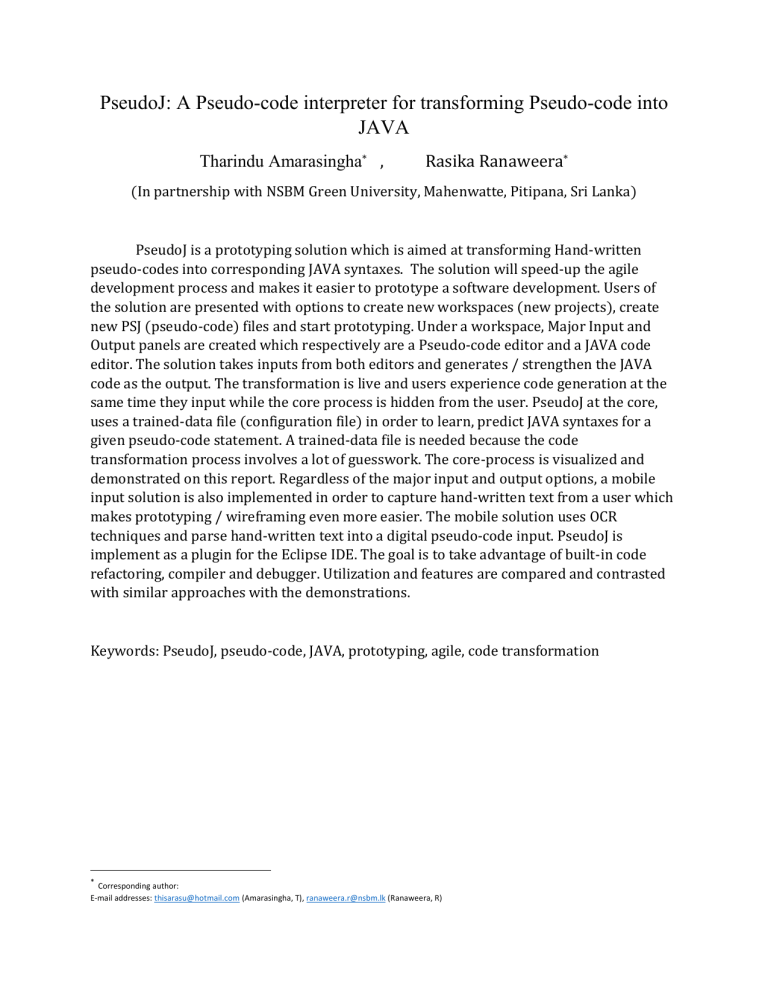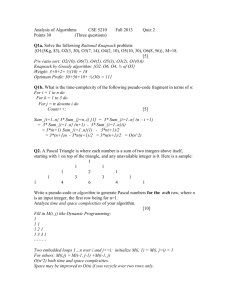
PseudoJ: A Pseudo-code interpreter for transforming Pseudo-code into JAVA Tharindu Amarasingha* , Rasika Ranaweera* (In partnership with NSBM Green University, Mahenwatte, Pitipana, Sri Lanka) PseudoJ is a prototyping solution which is aimed at transforming Hand-written pseudo-codes into corresponding JAVA syntaxes. The solution will speed-up the agile development process and makes it easier to prototype a software development. Users of the solution are presented with options to create new workspaces (new projects), create new PSJ (pseudo-code) files and start prototyping. Under a workspace, Major Input and Output panels are created which respectively are a Pseudo-code editor and a JAVA code editor. The solution takes inputs from both editors and generates / strengthen the JAVA code as the output. The transformation is live and users experience code generation at the same time they input while the core process is hidden from the user. PseudoJ at the core, uses a trained-data file (configuration file) in order to learn, predict JAVA syntaxes for a given pseudo-code statement. A trained-data file is needed because the code transformation process involves a lot of guesswork. The core-process is visualized and demonstrated on this report. Regardless of the major input and output options, a mobile input solution is also implemented in order to capture hand-written text from a user which makes prototyping / wireframing even more easier. The mobile solution uses OCR techniques and parse hand-written text into a digital pseudo-code input. PseudoJ is implement as a plugin for the Eclipse IDE. The goal is to take advantage of built-in code refactoring, compiler and debugger. Utilization and features are compared and contrasted with similar approaches with the demonstrations. Keywords: PseudoJ, pseudo-code, JAVA, prototyping, agile, code transformation * Corresponding author: E-mail addresses: thisarasu@hotmail.com (Amarasingha, T), ranaweera.r@nsbm.lk (Ranaweera, R)


